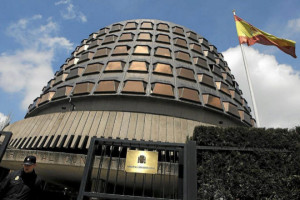
The Constitutional Court, He has cancelled the municipal tax on capital gains, that in theory you gravel the revaluation of properties when they are sold, but in practice is always paid, Although they have lost value.
The resolution, the Vice President of the Tribunal has been rapporteur of which, Adela Asua, determines which “in no case may the legislator establishment a tribute taking into consideration acts or facts that are not exponents of a real or potential wealth”. I.e., for the constitutional it is not legal to impose a tax when there has been no economic gain.
Like this, the ruling handed down by the TC plenary will require to reformar este impuesto local, técnicamente denominado Impuesto sobre el Incremento del Valor de los Terrenos de Naturaleza Urbana, an important source of revenue for Councils.
El TC considera inconstitucionales los impuestos que afecten a “those cases in which the economic capacity taxed by the tribute is, no longer potential, but non-existent, virtual or fictitious”. It therefore corresponds to the legislator, following the publication of the judgment, carry out the modifications or adaptations of the legal regime of tax that allow not subject to taxation situations of lack of increase in value of land in urban nature, says TC. Or is, deberán ser diseñados de nuevo estos impuestos locales de manera que no se graven “situations” where there has been an economic gain o se impida “taxpayers prove that there was actually an increase in value”.
The decision of the Constitutional Court, adopted unanimously, It has been partially estimated the question of unconstitutionality raised by the Court of the contentious administrative number 3 Donostia, with regard to several articles of provincial 16/1989, of 5 July, the tax on the increase of the value of the land of urban nature of the historical territory of Gipuzkoa.
The Tribunal considers that the abovementioned tax is contrario al principio de capacidad económica, previsto en la Constitución.
The impugned rule establishes a tax on the surplus value of land in urban nature, tax that accrues at the time in which occurs the sale of the good and that is calculated objectively from the rateable value and the years (between a minimum of one and a maximum of twenty) for which the owner has been holder of the same. In this way, It is estimated so that no tiene en cuenta si el inmueble ha ganado o no valor y genera una ficción de incremento económico que, In addition, It prevents all evidence to the contrary to the particular.
The statement recalled that the principle of economic capacity is not only preached of the tax system as a whole, but it must be present in each tax.
Read more: http://www.elmundo.es/economia/2017/02/17/58a6e092ca4741403e8b4675.html